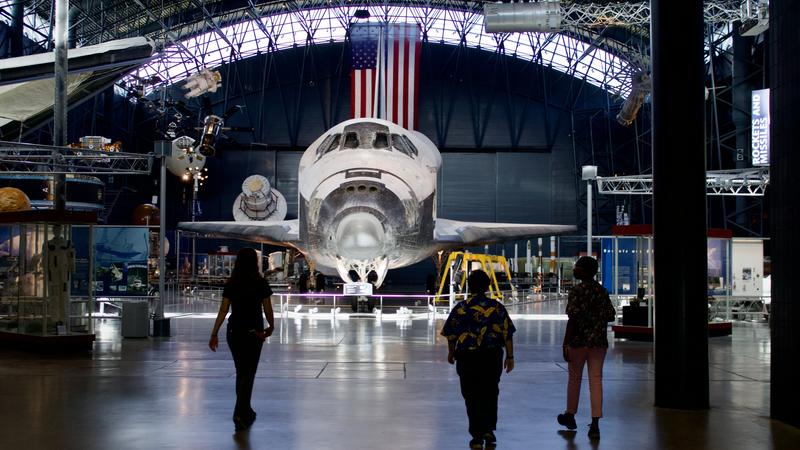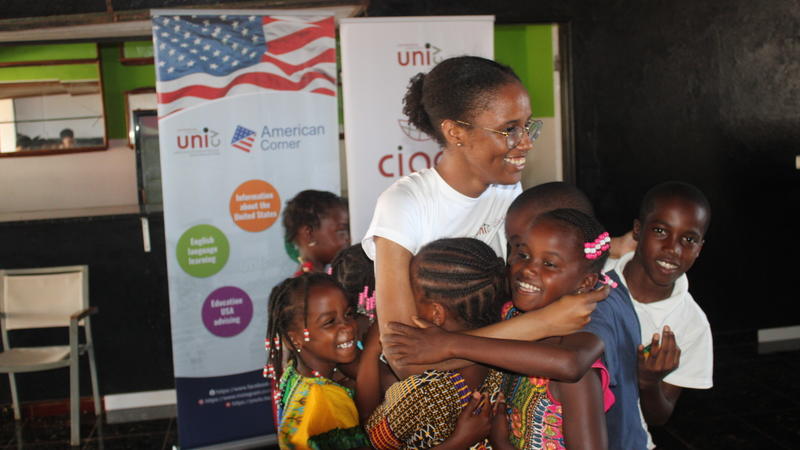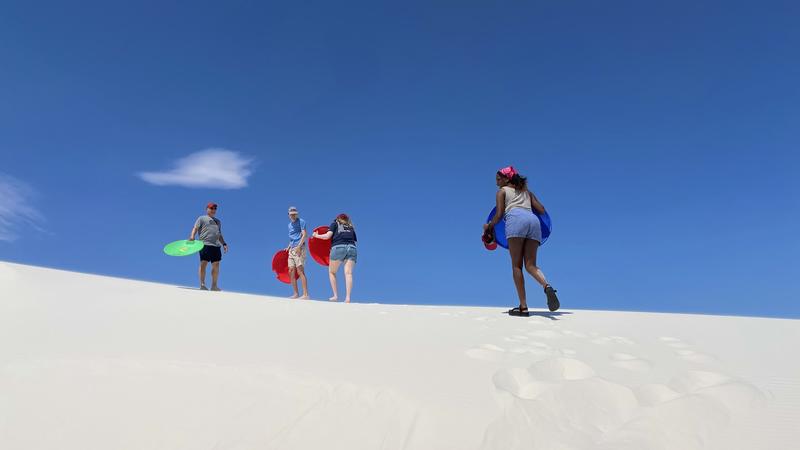Tanner 2023
ABOUT
Established through the generosity of Wellesley College trustee emerita Estelle “Nicki” Newman Tanner ’57, the Tanner Conference celebrates the relationship between the liberal arts classroom and student engagement in the world beyond the Wellesley College campus. On the day of the conference, the entire Wellesley community gathers to learn from students about their participation in and learning from internships, civic engagement, study abroad and other opportunities. Presenters have the chance to reflect upon their experiences and share their insights and growth with their peers, while attendees learn about the ways in which such experiences can complement the classroom experience and clarify one’s interests and goals. Many students describe presenting at and attending Tanner as a highlight of their Wellesley experience.
Schedule
The Tanner Conference will be held on Tuesday, November 14, 2023 at the Science Complex
8:45-9:15 A.M. Breakfast
9:15-10:25 A.M. Session 1
10:25-10:45 A.M. Refreshment Break
10:45-11:55 A.M. Session 2
12:00-1:30 P.M. Luncheon, Science Complex Focus Area & Data Lounge
12:45-1:15 P.M. Info Session: Internship & Study Abroad Overview, Funding Opportunities (Room H101)
1:30-2:40 P.M. Session 3
2:40-3:00 P.M. Break
3:00-4:10 P.M. Session 4
4:15-5:00 P.M. Tanner Reception Science Complex Focus Area
2023 Tanner Conference Program 2023 Tanner Schedule Overview Grid
watch the livestream
To view the following panels via Livestream please click the "Watch the Livestream" link above:
Session One (9:15 AM) Wellesley in Product: Design and Human-Computer Interaction
Session Two (10:45 AM) The Japanel: Scrutinizing and Celebrating International Spaces in Japan
Session Four (3:00 PM) Tanner Roundtable on Artificial Intelligence and the Liberal Arts
Reflections
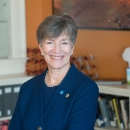

“It is an ongoing privilege to see, hear, and learn from remarkable Wellesley students who exemplify the difference that smart and thoughtful women can make in the world.”
Hear Nicki Tanner ’57 Trustee Emerita and Professor Lee Cuba discuss how the Tanner Conference began.
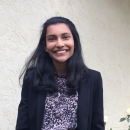

“I attended as many Tanner sessions as I could my first year, eager to learn more about the many ways learning can extend outside the classroom, especially at a liberal arts institution like Wellesley. Now, after finishing my own internship, I’ve applied to the Tanner this fall. My aspiration is to show all the wonderful learning opportunities I’ve been given and share my internship experience and knowledge with the Wellesley College community, with the hope that it inspires someone, just as Tanner did for me.”
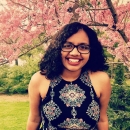

“Tanner helped me to confront many aspects of my summer experience that I hadn't given much thought to and the process of crafting my presentation from those reflections gave rise to a senior year in which I was able to be much more focused and intentional about my future goals.”


“Tanner is about integrating what you learn about society with what you learn from society, what you learn with the heart with what you learn with the head, and what you learn at Wellesley with what you learn away from Wellesley. It is about how we learn for life.”


“The Tanner Conference at Wellesley offers more than presentations. After leafing through the booklet with descriptions of each presentation, I was able to attend some of the ones that stuck out to me. However, there was no way for me to go to every presentation that interested me. After the day of the conference, I reached out to each student who had a Tanner that interested me and asked to meet over a meal or coffee. I was able to meet up with almost everyone I reached out to. As a first-year student, it was remarkable to me that upperclass-students were so willing to share their experiences with me.”
Apply
2023 Tanner Conference Application Form (linked here), is due September 18, 2023 by 11:59 PM
Eligibility To present at the Tanner Conference is to partake in a special Wellesley tradition. All students who have had interned, volunteered, performed off-campus research, studied abroad or otherwise engaged in experiential learning beyond the classroom are welcome to submit an application, whether or not they received Wellesley funding, credit or other support for their experience.
Applying The Tanner Conference Application is linked above and will be open August 1st through September 18th. Prior to submitting your form please have your Tanner Advisor proofread and approve your abstract. If you are applying in a preformed panel (2 to 6 people) please make sure only one person in the group is submitting the application for the panel. It is best to do this together over Zoom or in person so everyone has their information listed correctly. Remember, you may only be part of one Tanner presentation. If you apply as an individual or small preformed panel (2 to 3 people) you will be grouped onto a panel of similar presentations by the Tanner Committee.
TANNER PHOTO Contest: On the application, students may submit a photo of therir experiential learning adventure (photo may be by you or of you) First Prize wins $100, Second Prize $75, and Third Prize $50.
Tanner Advisors All student applicants to Tanner must have a Wellesley Tanner advisor to review your abstract and help you prepare for your presentation. Who should you choose to serve in this role? The best choice is often someone familiar with your off-campus engagement, your interests and your goals. Ask a faculty or staff member who is aware of your experience and can offer you time and support. Your Advisor for Career Exploration or Career Industry Advisor, based in Career Education, are also happy and available to serve in this capacity.
Abstract All applicants (individuals or panels) must submit an abstract of up to 150 words that answers the following questions:
-
What was the focus of your off-campus experience?
-
What did this experience teach you about yourself and the world?
-
How does this experience relate to your past or future academic, social and/or professional goals?
-
What do you hope those who attend your presentation will learn?
PLTC Public Speaking Workshops will help you plan and practice your presentation. Join the Public Speaking Tips ZOOM meeting on Monday, November 6th at 5:30 PM. Organized by the PLTC, Roberta Schotka, Director of Programs, and presented by Joelle Garcia and Rahnuma Aroshi. Zoom LINK: https://wellesley.zoom.us/j/
The best presentations have a clear focus and an obvious sense of purpose, as well as substantive content.
-
Provide framing. Be sure to begin by briefly orienting your listener to the project and your role in it.
-
Be selective. Focus on one or two points about the work you did and the field you participated in, and illustrate these points with concrete examples and detail. If you are working with a panel of presenters, plan ways to distribute your focus amongst the panel members, and to make connections between the different approaches each of you takes. Consider the following questions to find your focus:
-
What is the most significant aspect of this project that you want to convey?
-
What was the most surprising and unexpected aspect of the work you did?
-
How did your perceptions of the field, work, topic, or people shift as a result of your experience?
-
What did you learn about your field?
-
What did you learn about yourself?
-
Plan to use your presentation to further your own learning. What do you want to record and remember about this experience? What do you want to be sure you don’t forget? How can you use the fact of presenting at Tanner to build shape around your off-campus learning? What about your own learning will be meaningful to others?
Consider how this experience connects to your work at Wellesley. How has the experience challenged you to rethink what you learned in your coursework, or shed new light on your earlier coursework? How has it influenced your intellectual interests, your course selection, the way you participate in class or study for class? What implications does this experience have for your future direction and/or career goals? What did you learn about yourself? Your ‘connections’ may infuse the body of your talk—but you may also find it useful to use “connections-to-Wellesley” as a way to conclude the presentation.
Tanner Conference Q & A
Q: What is the Tanner Conference? A: Established through the generosity of Wellesley College trustee emerita Estelle “Nicki” Newman Tanner ’57, the Tanner Conference celebrates the relationship between the liberal arts classroom and student engagement in the world beyond the Wellesley College campus. In the fall, on the day of the conference, the entire Wellesley community gathers to learn from students about their participation in and learning from internships, civic engagement, study abroad and other opportunities. Presenters have the chance to reflect upon their experiences and share their insights and growth with their peers, while attendees learn about the ways in which such experiences can complement the classroom experience and clarify one’s interests and goals. Many students describe presenting at and attending Tanner as a highlight of their Wellesley experience.
Q: When is the Tanner Conference? A: November 14, 2023
Q: When is the Application due? A: The Application deadline is September 18th at 11:59 PM
Q: Where do I find the Application? A: the Application is on the Tanner Conference website.
Q: Who is eligible to apply? A: To present at the Tanner Conference is to partake in a special Wellesley tradition. All students who have interned, volunteered, performed off-campus research, studied abroad or otherwise engaged in experiential learning beyond the classroom are welcome to submit an application, whether or not they received Wellesley funding, credit or other support for their experience. Students are allowed to participate in only one Tanner presentation and may apply as an individual or in a panel with a six-person maximum.
Q: Do I need an Advisor to apply? A: Yes! All applicants to Tanner must have a Wellesley Tanner advisor to review your abstract and help you prepare for your presentation. The best choice is often someone familiar with your off-campus engagement, your interests and your goals. Ask a faculty member or a Career Education staff member who is aware of your experience and can offer you time and support.
Q: How do I connect with an Advisor? A: Start by emailing or talking to the person to confirm that they will be your advisor. The faculty and staff at Wellesley know all about the Tanner Conference and understand they play an important role guiding the students.
Q: What should I expect from my collaboration with an Advisor? A: After confirming they are available to be your Advisor they should review your application abstract and approve it for submission, help you plan your presentation by giving you feedback regarding the substance, structure and style of your presentation. Make sure to ask them to attend your presentation and the Tanner Reception on the day of the Conference.
Q: What should my abstract focus on? A: Your abstract should respond to the below questions in approximately 150 words (note your title should not be more than 12 words).
- What was the focus of your off-campus experience?
- What did this experience teach you about yourself and the world?
- How does this experience relate to your past or future academic, social and/or professional goals?
- What do you hope those who attend your presentation will learn?
Q: May I apply as an individual or do I need to be part of a preformed panel? A: You have three options. (1) Apply as an individual and the review committee will place you on a panel with other similar applicants. (2) Apply as a small preformed panel of 2-3 students who will be grouped with other similar applicants to create a full panel. (3) Apply as a full preformed panel with a group of 4-6 students who will present the entire session.
Q: How long should my presentation be? A: The sessions are each 70 minutes long, 60 minutes for presentations and 10 minutes for Q & A. The presenters should divide the 60 minutes equally among the panelists. Most panels will have 5 or 6 presenters so plan on 10 to 12 minutes for your presentation. The name of your panel, room number, and number of panelists will be sent to you two weeks prior to the conference. Visit the room in advance for tech needs.
Q: Will there be a Public Speaking Workshop? A: Yes, PLTC will be offering a public speaking workshop in early November, please check the Tanner website for times and location.
Q: How should I dress for my presentation? A: Business casual, similar to a job interview.
Q: What time and where will the conference take place? A: All conference events will take place in the WC Science Center
- 8:45-9:15 A.M. Breakfast, Science Center Focus Area
- 9:15-10:25 A.M. Session 1
- 10:25-10:45 A.M. Break, Science Center Focus Area
- 10:45-11:55 A.M. Session 2
- 12:00-1:30 P.M. Lunch
- 1:30-2:40 P.M. Session 3
- 2:40-3:00 P.M. Break, Science Center Focus Area
- 3:00-4:10 P.M. Session 4
- 4:15-5:00 P.M. Tanner Reception Science Focus Area
Q: Who should I email with other questions? A: Please email tanner@wellesley.edu
- Student Request: In August and early September students may reach out and ask you to be their Tanner Advisor. Only accept the request if you are familiar with the student and their work. If you do not know the student or do not have the available time to work with them, suggest they reach out to Career Education and one of the counselors there will be their Advisor.
- Abstract Review: Request that the student send their Application Abstract to you to review prior to them submitting their application.
- Application Approval: Once the student has submitted their application it is assumed the advisor has reviewed and approved the abstract.
- Tanner Committee Review: During the subsequent two weeks the Committee will read the applications, group individual applicants into panels, and create an overarching panel title for each group.
- Student/Advisor Meeting #1: Meet with your student to guide them on the substance, style, and structure of the presentation. Review their PowerPoint and review ideas regarding professional presentations.
- PLTC Public Speaking Workshop: Advise your presenter to attend the Workshop on tips for public speaking.
- Student/Advisor Meeting #2: Dress rehearsal and final run through of their presentation
- Classroom Liaison: If you are advising a panel, please sign up to be a classroom liaison.
- Tanner Conference Day: Advisors should attend their student's presentation and if available the end of day Tanner Reception.
- Feel Appreciated: The Tanner Committee truly appreciates your support!
Collaborate
Tanner advisors support students as they prepare their presentations. Every student applicant to the Tanner Conference is asked to identify a faculty or staff member to perform this role. Advisors review and approve abstracts, help students to plan their presentations, and may ask the student to present a “dress rehearsal” of their Tanner presentation, allowing for feedback and guidance on substance, structure and presentation style. The advisor can provide advice on the content of the presentation and offer suggestions for making the presentation engaging and effective. Students can benefit a great deal from advisor advice on how much material to present; what to focus on; how to make use of visuals and PowerPoint slides; and how to deliver their presentation. Tanner advisors are also important audience members on the day of the Tanner Conference.

